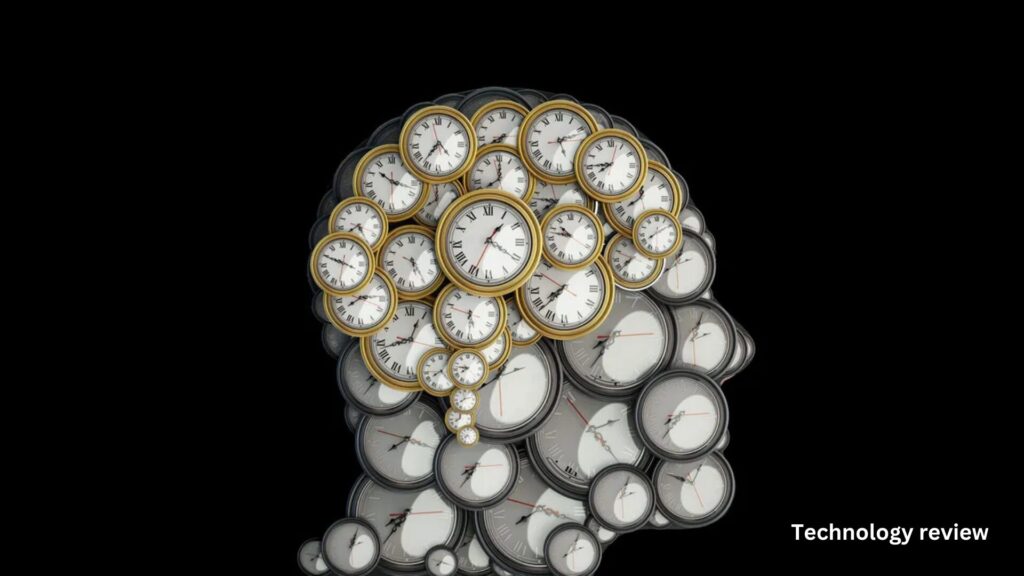The Download: Living for Longer and Sex in the Age of Al In today’s rapidly evolving world, two seemingly unrelated topics are capturing the public’s imagination: longevity and artificial intelligence in intimate relationships. As you navigate the complexities of modern life, you may find yourself pondering the implications of extended human lifespans and the integration of Al into the most personal aspects of human interaction. This article explores the cutting-edge research in life extension technologies and delves into the provocative realm of Al-enhanced sexual experiences. You’ll discover how these advancements are reshaping societal norms, challenging ethical boundaries, and potentially redefining what it means to be human in the 21st century and beyond.
The Download on Living for Longer
In the age of Al, the quest for longevity has taken center stage. As we explore the intersection of technology and biology, new possibilities for extending human lifespan are emerging. The Download on living for longer reveals exciting developments that could reshape our understanding of aging and mortality.
Cutting-Edge Research
Scientists are making significant strides in unraveling the mysteries of aging. From genetic manipulation to advanced drug therapies, researchers are targeting the root causes of cellular decay. These breakthroughs offer hope for not just extending life, but improving its quality in our later years.
Al-Powered Longevity
Artificial intelligence is revolutionizing how we approach longevity. Machine learning algorithms are analyzing vast datasets to identify patterns in aging and potential interventions. This Al-driven approach is accelerating the pace of discovery, bringing us closer to personalized anti-aging treatments.
Ethical Considerations
As we push the boundaries of human lifespan, ethical questions arise. The implications of drastically extended lifespans on society, resources, and personal relationships must be carefully considered. Balancing the benefits of longevity with potential societal challenges will be crucial as we navigate this new frontier.
The Download on living for longer and sex in the age of Al presents a fascinating glimpse into a future where human potential may be dramatically expanded. As research progresses, we stand on the cusp of a revolution in how we perceive and experience the human lifespan.
Anti-Aging Research and Life Extension
The quest for living for longer has captivated humanity for centuries. Today, anti-aging research is at the forefront of scientific endeavors, offering tantalizing possibilities for extending human lifespan and improving quality of life in our later years.
Cutting-Edge Breakthroughs
Scientists are making remarkable strides in understanding the biological mechanisms of aging. From telomere preservation to cellular rejuvenation, researchers are uncovering potential pathways to slow down or even reverse the aging process. These advancements could revolutionize our approach to age- related diseases and potentially increase human longevity.
Ethical Considerations
As we explore the frontiers of life extension, ethical questions arise. How will society adapt to significantly longer lifespans? What are the implications for resources, retirement, and intergenerational relationships? These considerations are crucial as we navigate the complexities of anti-aging research in the age of Al.
The Role of Technology
Artificial intelligence is playing a pivotal role in accelerating anti- aging research. Machine learning algorithms can analyze vast datasets, identifying patterns and potential interventions that human researchers might overlook. This synergy between human expertise and Al capabilities is pushing the boundaries of what’s possible in the quest for extended human life.
Can We Extend the Human Lifespan?
The quest for longer life has captivated humanity for centuries. Today, as we delve deeper into the science of aging, the possibility of extending the human lifespan seems more tangible than ever. But can we truly push the boundaries of our biological clock?
The Science of Longevity
Recent advancements in genetics and biotechnology have shed light on the mechanisms of aging. Researchers are exploring various avenues, from telomere preservation to cellular rejuvenation, in hopes of slowing down or even reversing the aging process. These breakthroughs are paving the way for potential life-extending therapies.
Challenges and Ethical Considerations
While the prospect of living for longer is enticing, it raises complex ethical and societal questions. How would extended lifespans impact population dynamics, resource allocation, and intergenerational relationships? Moreover, ensuring equitable access to life-extending technologies remains a significant challenge.
The Future of Human Longevity
As we continue to unravel the mysteries of aging, the dream of significantly extending human life may become a reality. However, it’s crucial to approach this possibility with careful consideration of its far-reaching implications. The pursuit of longevity must be balanced with efforts to improve the quality of life throughout our existing lifespan.
In the age of Al, where technological advancements are reshaping various aspects of human existence, including our intimate lives, the quest for extended lifespans adds another dimension to our evolving relationship with technology. As we contemplate living for longer, we must also consider how these advancements will interact with other aspects of human experience, including sex in the age of Al.
The Ethics of Radical Life Extension
As we explore the possibilities of living for longer, ethical considerations come to the forefront. The prospect of radical life extension raises profound questions about fairness, resource allocation, and the very nature of human existence.
Equity and Access
One of the primary ethical concerns surrounding life extension technologies is the potential to exacerbate existing social inequalities. If these treatments become available only to the wealthy, it could create a two-tiered society where the rich live significantly longer than the poor. This disparity could have far- reaching consequences for social structures, economic systems, and political power dynamics.
Environmental Impact
Another crucial ethical consideration is the environmental
impact of a potentially larger, longer-lived population. As we grapple with climate change and resource scarcity, the added strain of extended lifespans could pose significant challenges. Balancing the desire for longer lives with sustainable practices becomes increasingly important in the age of Al and advanced biotechnology.
Psychological and Social Implications
Living for longer also raises questions about the psychological and social implications of extended lifespans. How might our relationships, career trajectories, and personal growth be affected? As we navigate sex in the age of Al and extended lifespans, we must consider how these changes could reshape human experiences and societal norms.
Al and the Future of Relationships and Sex
The Download: living for longer, and sex in the age of Al are reshaping our understanding of intimacy and human connections. As artificial intelligence continues to advance, it’s influencing various aspects of our lives, including our most personal interactions.
Virtual Companionship
Al-powered chatbots and virtual assistants are becoming increasingly sophisticated, offering emotional support and companionship. While these cannot replace human relationships, they’re providing a new form of interaction for those seeking connection in the digital age.
Enhancing Physical Intimacy
Sex tech powered by Al is revolutionizing the way we experience physical pleasure. From smart sex toys that learn user preferences to VR experiences that blur the lines between reality and fantasy, technology is opening up new avenues for sexual exploration and satisfaction.
Ethical Considerations
As we navigate sex in the age of Al, ethical questions arise. Issues of consent, privacy, and the potential for addiction to Al- powered sexual experiences need careful consideration. It’s crucial to balance technological innovation with human values and emotional well-being.
The intersection of Al and intimacy presents both opportunities and challenges. As we continue living for longer, these technologies may play an increasingly significant role in maintaining human connections and fulfilling our need for companionship and intimacy throughout extended lifespans.
Conclusion
As you’ve seen, advancements in longevity research and Al- powered intimacy are reshaping fundamental aspects of the human experience. While the prospect of extended lifespans offers exciting possibilities, it also raises complex ethical and societal questions that demand careful consideration. Similarly, the integration of Al into our most personal relationships presents both opportunities and challenges. As these technologies continue to evolve, it’s crucial that you stay informed and engaged in the ongoing dialogue surrounding them. The choices we make today will shape the future of human life and connection. By approaching these developments thoughtfully, you can help ensure they enhance rather than diminish our shared humanity.



